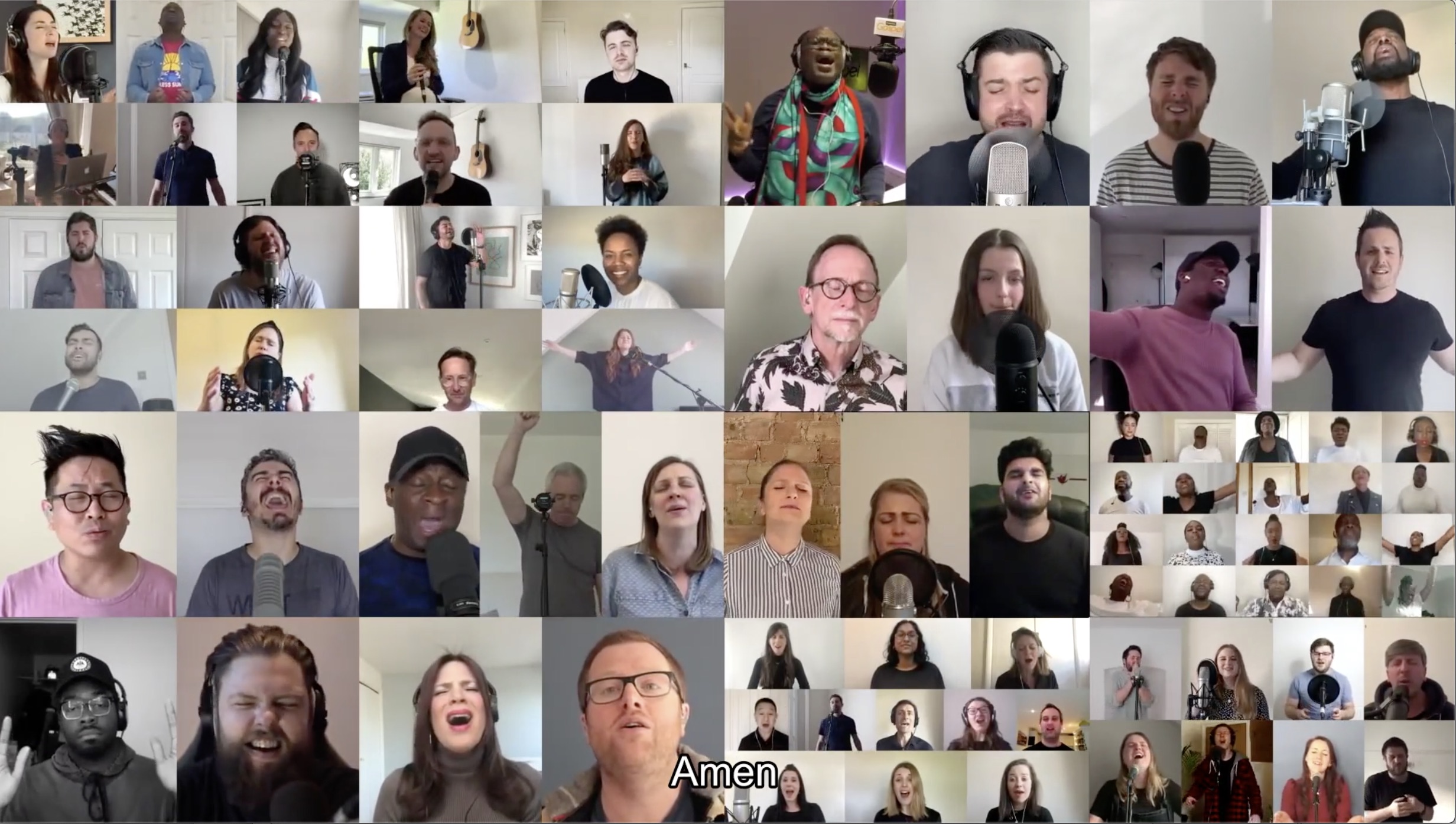The Blessing - the song and the Dallas Willard Teaching

"The Blessing" is a new song that has 'gone viral'. Various versions of it have been recorded during the Corona Virus shutdown. This one is from the UK.
It is based on 'the Aaronic Blessing' which is found in Numbers 6:22-27
22 The Lord said to Moses, 23 “Tell Aaron and his sons, ‘This is how you are to bless the Israelites. Say to them:
24 “‘“The Lord bless you
and keep you;
25 the Lord make his face shine on you
and be gracious to you;
26 the Lord turn his face toward you
and give you peace.”’
27 “So they will put my name on the Israelites, and I will bless them.”
It is remarkable that this blessing that was first given to a group of ex-slaves in a middle eastern wilderness over 3000 years ago has been used across the centuries and is now being sung by tens of millions of people. I hope this song will help embed the Aaronic Blessing in your soul. But more than that, I hope that for the rest of your life you will regularly bless other people with it:
-
Out loud in church gatherings
-
Quietly as you prayer walk
-
In your mind as you pass people in the supermarket
But what does it mean to bless people?
Here are some excerpts about Blessing from 'Living in Christ's Presence' by Dallas Willard

What Is Blessing?
Blessing is the projection of good into the life of another. It isn’t just words. It’s the actual putting forth of your will for the good of another person. It always involves God, because when you will the good of another person, you realize only God is capable of bringing that. So we naturally say, “God bless you.”
You bless someone when you will their good under the invocation of God. You invoke God on their behalf to support the good that you will for them. This is the nature of blessing. It is what we are to receive from God and then give to another. The extent to which that goes is seen in Jesus’ and Paul’s teachings that we should bless those who curse us......
Now we need to deepen that just a little bit, because it isn’t just a verbal performance. It isn’t “bless you” said through gritted teeth. It’s a generous outpouring of our whole being into blessing the other person. So, among other things, you don’t want to hurry a blessing. It becomes a habit that we say thoughtlessly, “God bless.” Well, that’s better than a lot of other things we could say, but we want to be able to put our whole self into our blessing. That is something that we need to be thoughtful about. We don’t just rattle off a blessing. It is a profoundly personal and powerful act.
The Art of Receiving
One of the problems in blessing is to get the other person to hold still long enough to receive it. There is a great art and spirit to receiving a blessing. When we receive a blessing, we should not be thinking about blessing that person back. It is really a challenge to come to the place where you can just receive, and it’s a part of the grace of life with others to be able to receive their blessing...... Blessing is an act of grace. It isn’t an act of indebtedness. We just receive it, but we have to have time to do that. We have to be able to be calm in our soul to receive the blessing. One of the sad effects of how we give benedictions in our church services is that people are thinking, When are we going to get out of here? or other things. This isn’t always true, of course, but they are apt not to receive the blessing that is given to them.
Sharing the Aaronic Blessing
In Numbers 6:24-26 we find the great Aaronic blessing. This is the blessing Moses instructed his brother, Aaron, to place on the people of Israel. Thank God for it! When you try to improve on it, you realize you are not going to make much headway. Let’s look at this blessing and think about its content.
“The Lord bless you.” That means “God bring good constantly into your life.” “The Lord bless you and keep you.” That means “God protect you. God build around you his safekeeping. The blood of Jesus and the Spirit of Christ be over you and keep you.” It’s good to study this with the Lord’s Prayer and with other parts of the Bible. Stop for a moment and think about saying that to someone: “God bless you and keep you.” Imagine looking them in the eyes when you say it. This is very intimate and can be threatening. I’ve done this with groups where people broke out in tears and broke out in laughter because it touched so deeply.
Just think now about saying to another person as you look into their eyes, “God bless you and keep you.” Emphasize you. This needs to be very personal. “God bless you and keep you. God make his face to shine upon you.” There’s so much about the face of God in the Bible. One of the most precious things that we can have is living before the shining face of God. Now, if you have trouble with the shining face, find a grandparent somewhere and watch their face shine on their grandchild; that can give you a little idea. There is such radiance that comes out of a person with the shining face. And your face is meant to shine. Glory is meant to be shared from God to human beings. Glory always shines. It always shines.
Now you are asking that God’s shining face be over the person you are talking to. “The Lord make his face to shine upon you. The Lord be gracious unto you.” Gracious means the flow of love and his activity in creating what is good. “Be gracious unto you.” Again, don’t hurry. Just go meditatively over it: “The Lord bless you and keep you; the Lord make his face shine upon you and be gracious to you; the Lord lift up his countenance upon you.” That’s interesting language drawn from how we relate to one another as persons. “Lift up” means something like, “May the Lord look right at you personally.”
God’s Presence in Blessing
This is about the manifest presence of God. We know that God is present everywhere, but he is not manifest everywhere. The invocation, the blessing, is designed to project that presence of God in a manifest way to the person you are talking to. “The Lord lift up his countenance upon you and give you peace.” Peace comes in the presence of God, in having God’s shining face over you and in having him looking to you.
The psalm says the Lord’s ears are open to the righteous. His eyes are open to the righteous. His ears are open to their cry. To live in that atmosphere is what we’re asking in a blessing. We’re asking for an entire atmosphere of God’s reality to be present on the person we are blessing** under the invocation of God. So think of the depth of each phrase.
**
"Asking for an entire atmosphere of God’s reality to be present" is the meaning of Num 6:27 'So they will put my name on....'
So the Aaronic Blessing is a profound revelation of the actual nature of God:
-
God's nature is to do good to people and to protect them.
-
God is a God who delights over and is gracious towards people.
-
God is a God who is interested in people and pays attention to them.
-
God is a God who brings peace into people's lives.
As we give and receive the Aaronic Blessing, let's appreciate more deeply the wonderful goodness of God.